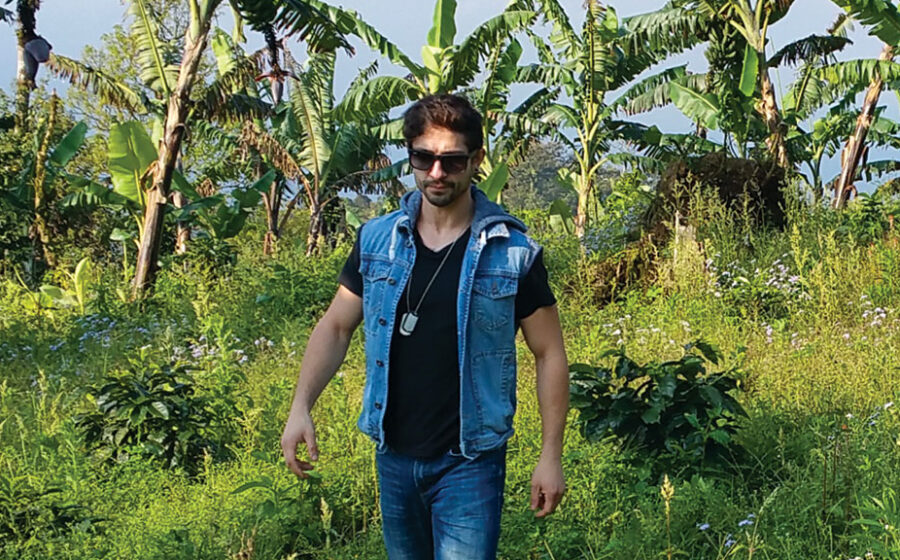[J]oey Stazzone, the owner of Cafe Kreyól, says that sourcing coffee and navigating the export and import process isn’t much different than smuggling drugs. And talking with farmers about ways to improve their coffee is much the same as talking with backcountry botanists about maximizing a marijuana grow. And he wholly believes that the hustle and entrepreneurial mind of a drug dealer are perfect for starting and growing a coffee company. His own experience in all those roles makes him think this is true, at least.
Stazzone spent much of high school and his early twenties either on drugs, selling drugs, or growing drugs of all sorts. He was arrested and jailed, repeatedly. In 2009 he was arrested, yet again, but he calls it a blessing, because the night of the arrest he’d gone to sleep dope sick and convinced he would kill himself in the morning. In jail, after reading the Bible, he had a “burning-bush experience. . . . My life changed at once. My heart changed. My desires changed.” He spent the next thirty months in jail.
In 2012, a year after his release, he went on a church mission trip to Haiti. He says they read some Bible stories to kids and painted a wall. That wasn’t enough for Stazzone. So, almost immediately, he headed back to Haiti, convinced he was going to start a coffee company.
How much time was there between your church trip and selling your first bag of Cafe Kreyól to Whole Foods?
A couple weeks. It was pretty crazy. I came back from Haiti, I was like, “I’m going back.” All my friends and family said, “That’s the craziest thing we’ve ever heard; you’re not going back to Haiti by yourself.” Next thing they knew, I was in Haiti taking Instagram pictures: I bought a motorcycle; I met a translator; I’m going in the mountains. I came home with suitcases of coffee from farmers I met. I roasted it inside of a Whole Foods store because I worked in the meat department. I was working three minimum wage jobs, going to school, had a criminal record, and I’m roasting coffee. The general manager came by and said, “Hey, you’re not supposed to be doing this, what’s going on?” “I was just in Haiti; I’ve got this coffee.” “Do you have packaging?” “I can make packaging as fast as I need to. Are you going to sell it?” “We aren’t allowed to buy from employees, so you’ll to have to quit. But I can hook you up with someone.”
That’s not how it’s supposed to happen.
No. We got into that first store. I demoed it like crazy every day so it would keep selling. Then I went to regional, and said, look at the sales for this store, they’re pretty high. They can’t see that I’m demoing it; they just see high sales. Next thing I know, I’m in fifty Whole Foods stores in a few months, and I said, “Hey guys, I can’t keep getting coffee air shipped from Haiti here because I’m not making any profit, but if you give me some money, we can make this happen.” It worked out nicely all in the matter of a few months.
So you’re buying island coffee and shipping it the most expensive way possible?
Exactly. I was losing money. But I knew there was a better way. That’s the best part about business: just making things happen. I learned that in drug dealing. Same concepts really.
That insane hustle is how you got started. How does it work now?
Our business model is direct trade, paying farmers based on quality, and our goal is to create sustainable jobs using organic or specialty grade coffee. We also want to create opportunity, and I find nurseries are a good way to do that. Planting trees, creating farms, but having Haitians do that. I feel that aid is harmful to people. I think aid is very useful in some situations, like when there is an earthquake or tsunami or for someone who can’t take care of themself. Haiti is not like that; the earthquake was six years ago. You have a bunch of people who are fully capable of doing something, and you don’t want to take that from them. So we employ people to grow nursery plants and those plants are sold to farmers at cost and the money goes to planting more trees.
That’s a different approach than many have toward developing countries.
Everyone says teach a man to fish. I want to take that a step further. Why are we teaching him to fish when we can teach him to make fishing poles and he can teach people to fish? I don’t want people going into Haiti forever, teaching them to do things as if we are the only people who can do that. I want teachers there. I want Haitians fixing it. I want to see someone start a nursery and be like, “I could be selling those plants for a dollar a piece. Why do I need him?” I would love for someone to cut me out.
—Cory Eldridge is the editor of Fresh Cup.
















